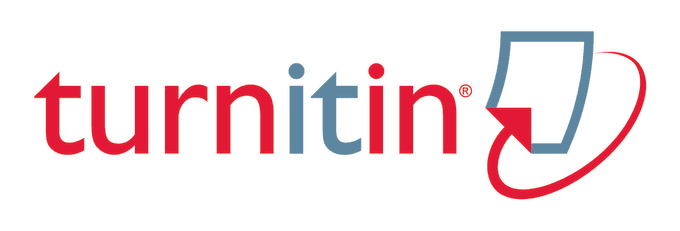Organizational Culture Transformation Work From Home (WFH) in Cross-View Generation
DOI:
https://doi.org/10.37535/101010120231Keywords:
Transformation, work from home, cross generations, organizational cultureAbstract
The COVID-19 pandemic that occurred in Indonesia from 2019 to 2022 gave birth to a new organizational culture in the form of work-from-home (WFH) activities to reduce public mobility and reduce the risk of transmission of the COVID-19 virus. After the COVID-19 pandemic, the WFH work culture is still applied in several institutions. This research aims to describe cross-generational views, namely those of the Baby Boomer Generation, Generation X, and Generations Y and Z, regarding the implementation of WFH work culture in the post-pandemic COVID-19 era associated with organizational culture transformation. This research uses a descriptive-qualitative approach through data collection methods such as interviews, observations, and literature studies. The results illustrate that generations have different views on the implementation of work-from-home culture in the post-pandemic COVID-19 era as seen from organizational communication through informative, regulative, persuasive, and integrative functions. The Baby Boomer Generation views the implementation of WFH in the post-pandemic era as an obstacle to organizational communication. Meanwhile, Generation X sees the implementation of WFH as a necessity that cannot be avoided. Although, in some ways, Generation X also still sees the need for face-to-face meetings, Generations Y and Z are the antithesis of the Baby Boomer Generation. Generations Y and Z see the implementation of WFH as not an obstacle to organizational communication.
References
Andriyanty, R., Komalasari, F., & Rambe, D. (2021). Corporate Culture Mediated By Performance. Journal of Applied Management (JAM), 19 (3). https://jurnaljam.ub.ac.id/index.php/jam/article/view/1948
Bayu, R, R, Dyah, P, A, Nadia, A, R , Raihan, R, Rhenald, F, A, and Dasrun, H. (2021). Employee Communication Patterns During Work from Home Period. Journal of Digital Media & Relationships, 3 (1), 24–29.
Bhaduri, E., Manoj, BS, Wadud, Z., Goswami, AK, & Choudhury, CF (2020). Modeling the effects of COVID-19 on travel mode choice behavior in India. Transportation Research Interdisciplinary Perspectives, 8 (December), 100273. https://doi.org/10.1016/j.trip.2020.100273
CNBCIndonesia (2020). 94 Patient Die a day. Coronas Killed 1110 people on February 12, 2020.
Co, NJS, Dimaculangan, KF, & Peralta, MHT (2023). Effects of COVID-19 pandemic on mode choice behavior of working Filipinos in Metro Manila. Asian Transport Studies, 9 (December 2022), 100101. https://doi.org/10.1016/j.eastsj.2023.100101
Covid-19.go.id (2022). Statistics Development Data COVID-19 And Case ACTIVE per month, October 25, 2022.
Davis, R P. (2022). Organizational Communication Function in Implementing WFH- For Private Employees During the COVID-19 Pandemic. DISCOURSE: Scientific Journal of Communication Studies, 21 (No.1), 50–64.
Delbosc, A., Currie, G., Jain, T., & Aston, L. (2022). The 're-norming' of working from home during COVID-19: A transtheoretical behavior change model of a major unplanned disruption. Transport Policy, 127 (March), 15–21. https://doi.org/10.1016/j.tranpol.2022.08.007
Duta Mustajab, Azies Bauw, Abdul Rasyid, Andri Irawan, Muhammad Aldrin Akbar, &. (2020). The Phenomenon of Working from Home as an Effort to Prevent COVID-19 Attacks and Its Impact on Work Productivity. TIJAB (The International Journal of Applied Business), 4 (1), 13.
Garretsen, H., Stoker, JI, Soudis, D., & Wendt, H. (2022). The pandemic that shocked managers across the world: The impact of the COVID-19 crisis on leadership behavior. Leadership Quarterly, May, 101630. https://doi.org/10.1016/j.leaqua.2022.101630
Jain, T., Currie, G., & Aston, L. (2022). COVID and working from home: Long-term impacts and psycho-social determinants. Transportation Research Part A: Policy and Practice, 156(December 2021), 52–68. https://doi.org/10.1016/j.tra.2021.12.007
Kompas.com (2021). Know What That Generation Baby boomer, X, Y, Z, Millennials And alpha, December 26, 2021
Kroesen, M., De Vos, J., Le, H. T. K., & Ton, D. (2023). Exploring attitude-behavior dynamics during COVID-19: How fear of infection and working from home influence train use and the attitude toward this mode. Transportation Research Part A: Policy and Practice, 167(December 2022), 103560. https://doi.org/10.1016/j.tra.2022.103560
Mepparambath, R. M., Nguyen Huynh, H., Oon, J., Song, J., Zhu, R., & Feng, L. (2023). The impact of the COVID-19 pandemic on the fundamental urban mobility theories using transit data from Singapore. Transportation Research Interdisciplinary Perspectives, 21(April), 100883. https://doi.org/10.1016/j.trip.2023.100883
Paul, J. (2022). Work from home behaviors among U.S. urban and rural residents. Journal of Rural Studies, 96(June), 101–111. https://doi.org/10.1016/j.jrurstud.2022.10.017
Pawito. (2008). Penelitian Komunikasi Kualitatif.
Raj, R., Kumar, V., Sharma, N. K., Singh, S., Mahlawat, S., & Verma, P. (2023). The study of remote working outcome and its influence on firm performance. Social Sciences and Humanities Open, 8(1), 100528. https://doi.org/10.1016/j.ssaho.2023.100528
Salain Putu Pradiva Putra, Adiyadnya Made Santana Putra, & Rismawan Putu Agus Eka. (2021). Studi Eksplorasi Dampak Work From Home Terhadap Ki. Jurnal Satyagraha, 03(02), 25.
Santiago-Vela, A., & Mergener, A. (2022). Gender overeducation gap in the digital age: Can spatial flexibility through working from home close the gap? Social Science Research, 106(March), 102727. https://doi.org/10.1016/j.ssresearch.2022.102727
Schein, EH (2010). Organizational Culture and Leadership. Oxford Jossey-Bass Publishers.
Sendjaja, S. (2007). Organizational Communication Theory. Open University.
Tinekaningrum, Y., Wibowo, KA, & Mulyani, HS (2021). The Effect of Employee Personal Traits on Work From Home (WFH) Satisfaction During the COVID-19 Pandemic. Journal of Biotechnology, 20 (1), 124–131. https://doi.org/10.5614/sostek.itbj.2021.20.1.12
Ubaid, A., & Galuh, R. (2018). Work From Home and Its Impact on Freight Forwarding Service Workers in Pondok Karya Village. Journal of Education, Economics, and Business, 5 (2), 3. http://dspace.lib.niigata-u.ac.jp/dspace/bitstream/10191/47523/2/h28ndk382.pdf
Zulkarnaen, W. (2021). Performance Quality of Employees When Work From Home: an Analysis of Employee Competency During the COVID-19 Pandemic. Commitment: Scientific Journal of Management, 2 (2), 1–8. https://doi.org/10.15575/jim.v2i2.14373
Downloads
Published
Issue
Section
License
Copyright (c) 2023 Oman Sukmana, Euis Komalawati

This work is licensed under a Creative Commons Attribution-NonCommercial 4.0 International License.
Bagi artikel yang dimuat di Jurnal Communicare, berlaku aturan Hak Cipta sebagai berikut:
- Jurnal Communicare adalah pemegang hak untuk mempublikasikan artikel untuk pertama kalinya.
- Penulis tetap memegang hak cipta atas karya tulis yang terbit di Jurnal Communicare, dan dapat menggunakan karyanya dengan bebas, selama tidak melanggar peraturan.
- Karya yang dimuat di Jurnal Communicare berada dibawah lisensi Creative Commons Attribution 4.0 International License














